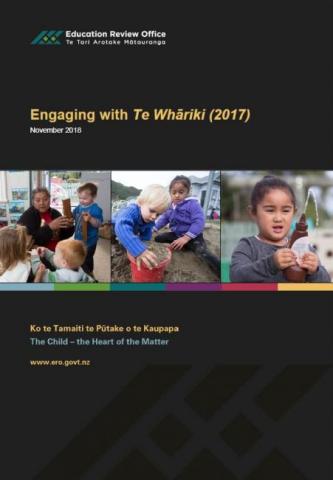Relationships for learning
Published: 04 Sep 2017
A learning community characterised by whanaungatanga and manaakitanga creates the challenge and support needed to develop learning to learn capabilities and achieve successful learning outcomes.
This video was filmed at McAuley High School.
- Audience:
- Education
- Parents
- Schools
- Content type:
- Research
- Topics:
- Improvement
- Relationships
- Curriculum
- Teaching
- Evaluation
- Whanaungatanga
- Manaakitanga
- Video
- Improvement in Action Te Ahu Whakamua




